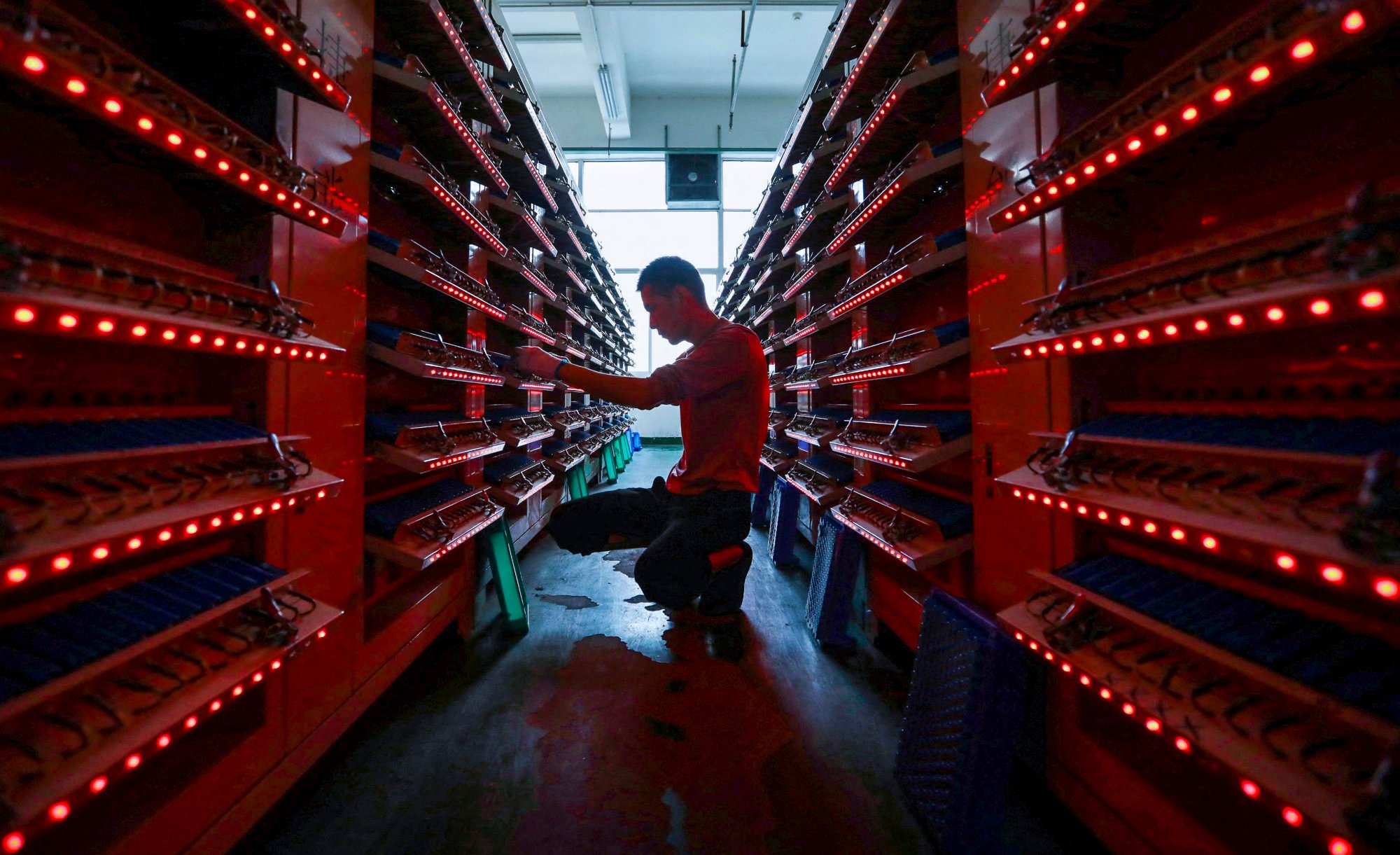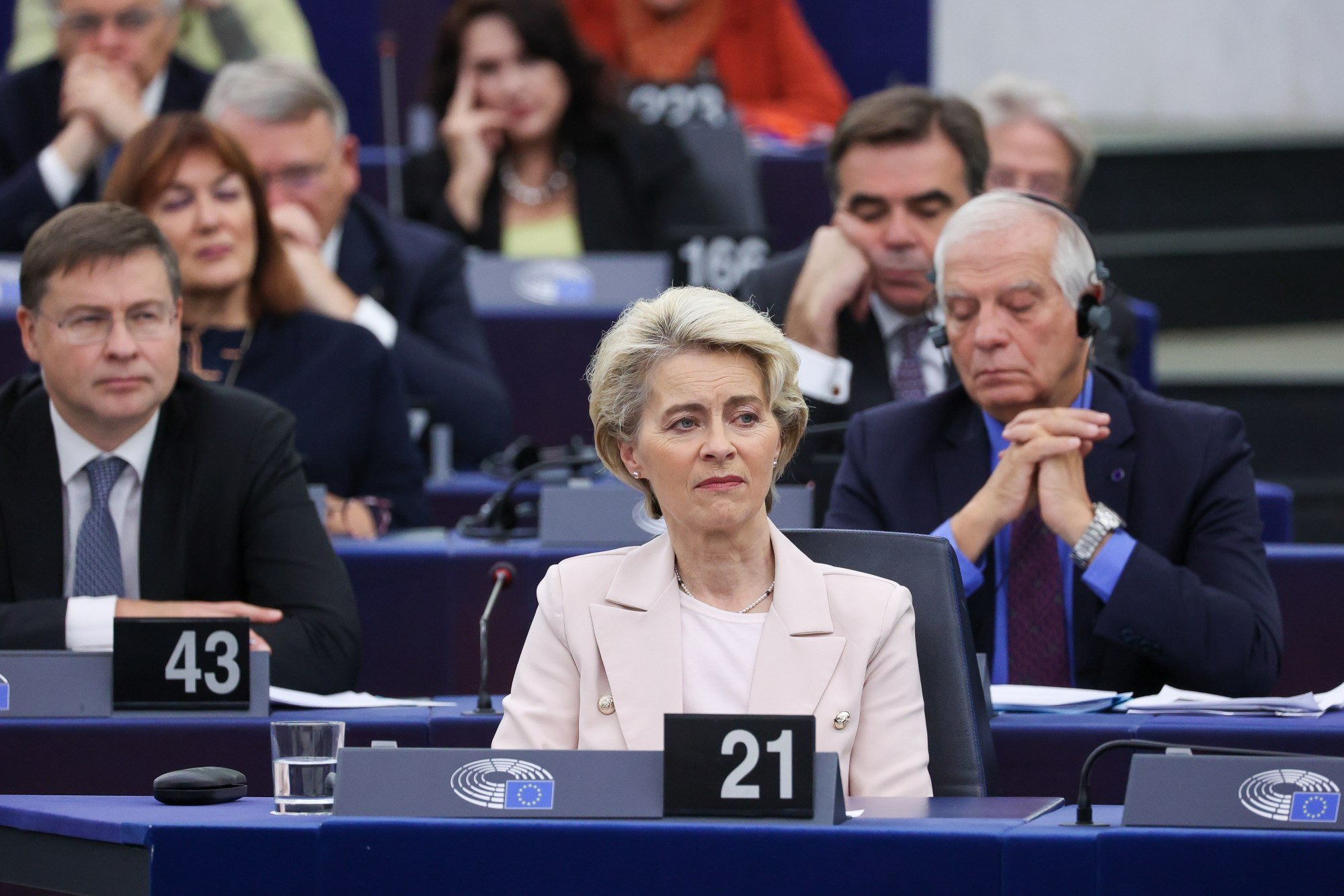
EU strikes deal with Chile in bid to beat China to vast lithium reserves
- Upgrade to 2002 trade deal will see Chile make exports to the EU restrictions-free and narrow the scope of its ‘dual pricing policy’ for local firms
- Brussels has been pushing to reduce reliance on China for critical minerals like lithium that are key to its green transition goals for 2030
The agreement, an update to a free-trade deal signed 20 years ago, will prevent Chile from giving exclusive trading rights to any specific company.
It will also help the EU get better access to Chilean copper – another critical mineral.
“[The agreement will] certainly help us diversify our resources and move out of dependence on China, particularly on lithium and copper,” an EU official said on Friday.
“It is also a model for other agreements that we may have with other partners where the components of non-discriminatory access to raw materials will be key.”
Chinese companies have been scouring the globe for access to lithium, the prices of which have skyrocketed this year amid unprecedented demand for products like electric vehicles, whose batteries are powered by lithium compounds.
Lithium is the new oil – and China’s heavy demand for it is creating tension
As part of the update to a 2002 deal, Chile has committed to not applying any curbs on exports to the EU, and to restrict the scope of its current “dual pricing policy”, under which it reserves 25 per cent of all raw material production for local companies at cheap prices.
The second point had been a stumbling block in negotiations in recent years, with Chile desperate to empower local companies to refine minerals in a bid to move away from being just an extraction-only hub.
EU trade chief Valdis Dombrovskis and Chilean foreign affairs minister Antonia Urrejola signed the agreement in Brussels on Friday. But, in an unusual move demonstrating the geopolitical significance of the deal, it was also signed by EU foreign affairs chief Josep Borrell.
“At a time of unprecedented geopolitical challenges, we are modernising and updating our relationship to match our shared ambition and deepen our political dialogue, cooperation, and economic relationship,” Borrell said.
Chile has the world’s biggest reserves of lithium, much of which sits beneath the salt flats of the Atacama Desert, one of the driest places on Earth. The country provides 40 per cent of the global lithium supply, and accounts for 80 per cent of the EU’s imports of the metal.
Lithium is used in rechargeable batteries, crucial to hi-tech goods such as smart devices and electric vehicles – industries the EU is desperate to upgrade.
While China is home to significant lithium reserves of its own, it has also become the dominant player in processing the metal sourced from around the world.

China accounted for 65 per cent of the world’s lithium processing and refining capacity in 2021, according to Rystad Energy.
In Chile, BYD has applied for permits to process lithium into cathodes for batteries, an executive told the news wire.
China digs in deep to retain rare earth dominance as Western shift quickens
China supplies 98 per cent of the EU’s rare earths, which are also needed for green energy products such as solar and wind power equipment – seen as essential to the bloc’s goal of carbon emissions at 55 per cent below 1990 levels by 2030.
Only 1 per cent of the raw materials required to make EV batteries come from the EU.
“Lithium and rare earths will soon be more important than oil and gas,” Commission President Ursula von der Leyen said in announcing the raw materials act. “The not-so-good news is – one country dominates the market.
“We must avoid becoming dependent again, as we did with oil and gas. We will identify strategic projects all along the supply chain, from extraction to refining, from processing to recycling. And we will build up strategic reserves where supply is at risk,” she said.

The signing of the Chilean deal comes as Brussels faces a dilemma on how to secure the future of its green industry, amid fears that European companies will relocate to the United States en masse to take advantage of its Inflation Reduction Act.
The huge US funding programme, signed into law in August, aims to unlock US$360 billion in green subsidies and tax breaks over the next decade, but will penalise non-American firms.
For example, the law excludes EVs assembled outside North America from tax credits of US$7,500 per car for buyers – prompting the EU to push for exemptions from what it describes as discriminatory policies.
Netherlands eyes curbs on selling chipmaking gear to China in deal with US
Meanwhile, the Netherlands is set to comply with some US export restrictions on the sale of semiconductor equipment to China, according to media reports.
Bloomberg reported that the new rules would bar the sale of equipment capable of making 14 nanometre chips, or smaller, to Chinese buyers. The Dutch government declined to comment on the reports.

